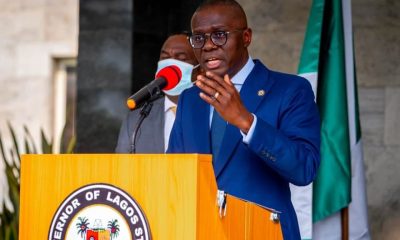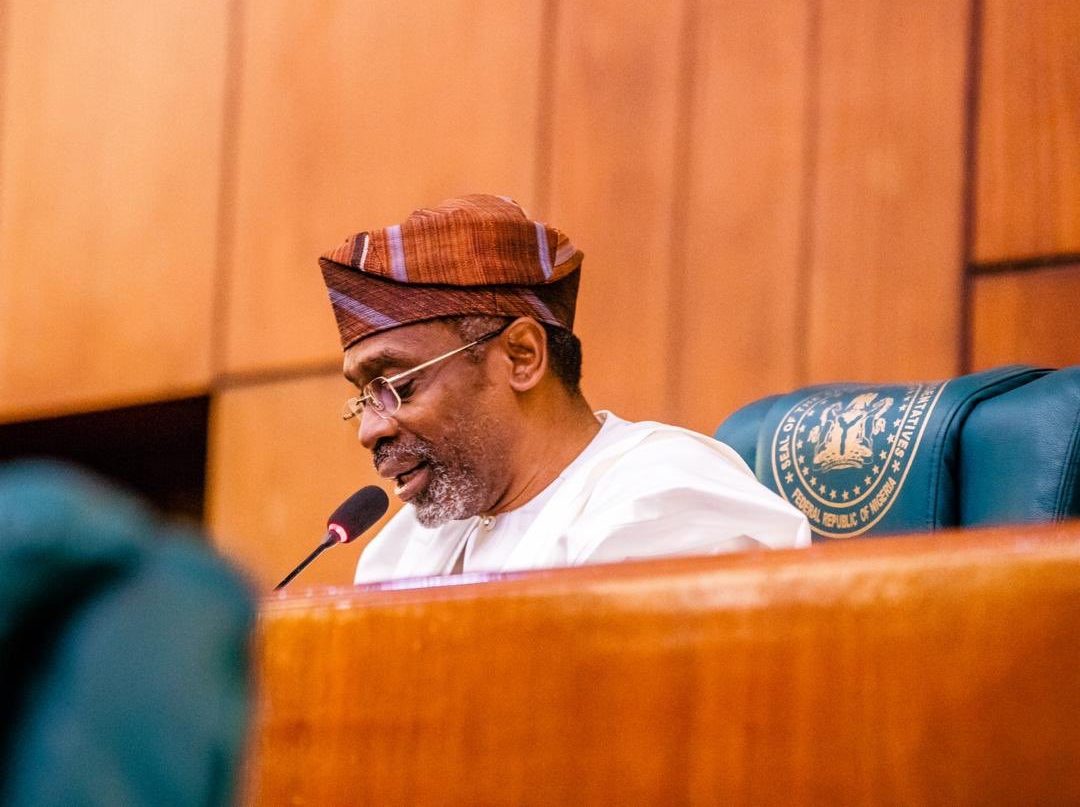Speaker of the House of Representatives, Femi Gbajabiamila, has reacted to the refusal of President Muhammadu Buhari to sign the Electoral Act amendment bill sent to him for assent.
Commenting on Tuesday, Gbajabiamila assured Nigerians that despite the President veto on the bill, the House will not give up on it, as it will review the issues when they are back from the yuletide break.
In a letter read to members at plenary on Tuesday, the President cited some possible challenges inherent in the recommendation for the use of only direct primaries for the election of candidates for electoral offices by political parties.
The President noted that after a careful review of the bill, “the pertinent issues implicated as follows to wit: The conduct of direct primaries across the 8,809 wards across the length and breadth of the country will lead to a significant spike in the cost of conducting primary elections by parties as well as increase in the cost of monitoring such elections by INEC who has to deploy monitors across these wards each time a party is to conduct direct primaries for the presidential, gubernatorial and legislative posts…
READ ALSO: Direct Primary: Buhari disappoints Lawan, Gbajabiamila first time in years, gives reason for NASS to rework, resend bill
“The indirect consequences of the issues of high cost and monetization are that it will raise financial crimes and constitute further strain on the economy. It will also stifle smaller parties without thé enormous resources required to mobilize all party members for thé primaries. This is not healthy for the sustenance of multi-party democracy in Nigeria”, adding that the process will also put a strain on the security forces, which may need to be deployed, amongst other issues.
The speaker in his speech set pace for the House’s winding down business for the year specifically on the electoral bill however noted that the bill must survive. “By the time we resume next year, we will be closer to the end of our tenures, with national elections rapidly approaching. In the past, election years have witnessed a decline in governance activities as political pursuits cloud the calendar. That will not be the case this time around.
“As you are aware, we have a legislative agenda in this 9th House of Representatives, which we tagged ‘Our Contract with Nigerians’. I expect that we will do everything within our power to keep the commitments we made in that document. So that when we appear before our various constituencies, we can stand tall in the knowledge that despite challenges and difficulties, we did what we promised to do, and given a chance again, will do even more.
“This year, despite the differences of opinions, all of us in the House of Representatives and indeed, the entire National Assembly, worked to pass the Electoral Act (Amendment) Bill. We included in that bill provisions we hoped will significantly enhance the conduct of our national elections and improve public confidence in our electoral outcomes. As it is now, that bill has not received presidential assent, and it falls to parliament to decide the best way forward.
“When we return in the new year, we will resume our efforts to reform the electoral system in our country. And we will do it together. That is what the Nigerian people expect of us, and we will do our duty for God and country. Whichever way it pans out, we must not throw out the baby with the bath water and must deliver a credible and enduring electoral system to Nigerians. Every law is a living document and as long as it has breath, it must survive”, he assured.

 Latest4 days ago
Latest4 days ago
 Crime6 days ago
Crime6 days ago
 Agribusiness1 week ago
Agribusiness1 week ago
 Agribusiness5 days ago
Agribusiness5 days ago
 Business5 days ago
Business5 days ago
 Crime6 days ago
Crime6 days ago
 Business6 days ago
Business6 days ago
 Business6 days ago
Business6 days ago

